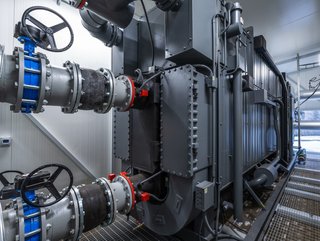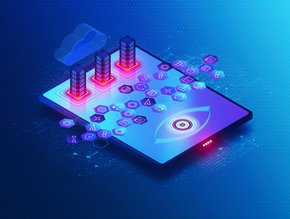Powering the Data Centre with Heat Reuse Technology

Rapidly intensifying power demands caused by new technologies like AI continue to impact the data centre in 2024.
With power comes heat. As data centres are having to work harder to cater to demand, they are generating excess heat that could have detrimental impacts on the planet.
Reusing waste heat could work to help reduce energy use. When it comes to the data centre sector, using excess heat from facilities has been discussed as a potential solution to the energy crisis.
As data centres are looking for new ways to be more sustainable in 2024, heat reuse could contribute to organisations being more energy efficient, reducing global energy consumption and streamlining services.
Energy crisis: The need for a renewable future
Society is currently seeing a widespread energy crisis driving a wedge between increased power demands and limited resources. This crisis was caused by a wide range of economic factors, including raised demands in the wake of the COVID-19 pandemic and the Russia-Ukraine conflict.
Additionally, data centres are also having to navigate the opportunities and challenges posed by generative AI (Gen AI), for example. It is no secret that Gen AI is demanding huge increases in power loads, with businesses within the sector seeking to drive new innovations with the technology.
It is clear that low-to-no-carbon power sources will be instrumental in addressing new power challenges.
Given such a surge in the demand for power, the data centre industry is having to work hard to meet its sustainability targets and self-proposed environmental, social and corporate governance (ESG) guidelines.
Heat reuse technology is continually suggested by industry leaders as a way to make data centres more sustainable and committed to decarbonisation. This is because the heat can be rerouted to heat residential or commercial buildings close to the source.
If heat reuse can be implemented at scale, data centre operators could implement suitable heat exchangers to enable reuse of excess heat. Ozgur Duzgunoglu, Design and Engineering Director at Telehouse Europe previously told Data Centre Magazine: “With heat pumps replacing traditional boilers that rely on fossil fuels, there is an excellent opportunity to accelerate the development of heat networks and pipe infrastructure connecting data centre buildings to local communities.
“During heating, [heat pumps] can utilise excess heat to warm nearby residential blocks, schools, hospitals, business parks, shopping centres, and sports facilities. This approach presents a viable option for recycling excess heat if data centre operators collaborate with energy providers and local authorities to obtain planning permissions and create the necessary infrastructure.”
Scaling sustainable solutions for an energy-efficient future
A notable recent example of an organisation utilising heat reuse technology is renewable energy company Octopus. The company has invested £200m (US$254m) into the pioneering data centre heat re-use technology created by Deep Green. The investment is aiming to speed up the roll-out of innovative technology into more public swimming pools and district heat networks.
With the funding provided by the Octopus Energy Transition Fund, it aims to support fast-growing companies wishing to accelerate their Net Zero strategies and guidelines. The fund scales organisations to decarbonise society, from heating, to storage, to low carbon transport.
Installed on-site, Deep Green data centres do not require additional grid upgrades or planning permission. Therefore, they can be up and running in a matter of weeks. Given that the data centre sector is facing unprecedented energy demand and an increase in carbon emissions as a result, this new data centre solution is more efficient and is able to support local communities with free heat.
Zoisa North-Bond, CEO of Octopus Energy Generation, says: “To tackle the energy crisis head-on, we need innovative solutions to unusual problems. By using excess heat from data centres to slash energy bills for communities across the UK, Deep Green solves two problems with one solution.
“We’re looking forward to rapidly rolling this out and positively impacting even more people as we drive towards a cleaner, cheaper energy future.”
******
Make sure you check out the latest edition of Data Centre Magazine and also sign up to our global conference series - Tech & AI LIVE 2024
******
Data Centre Magazine is a BizClik brand






